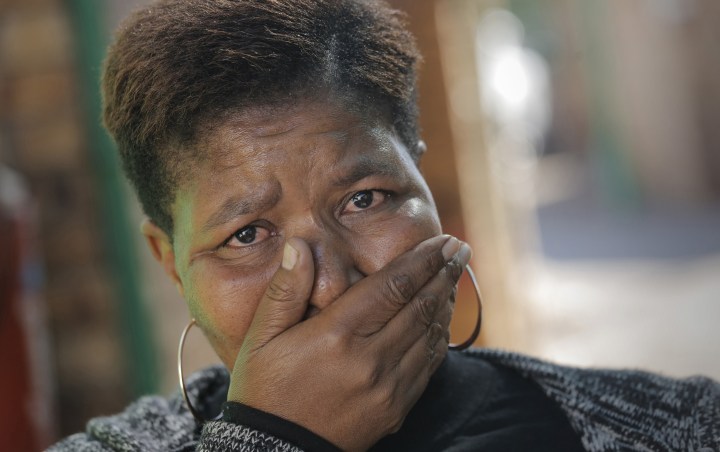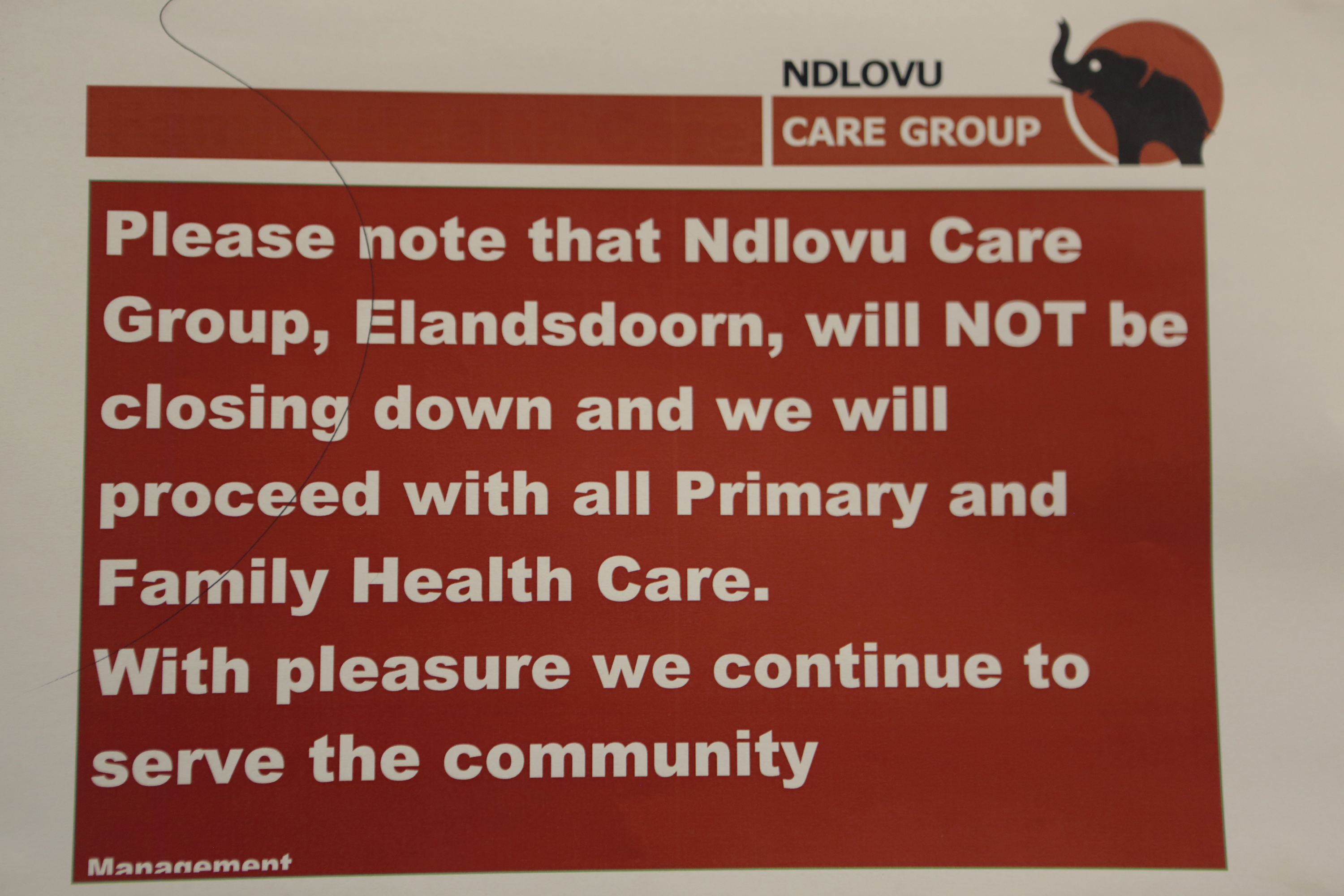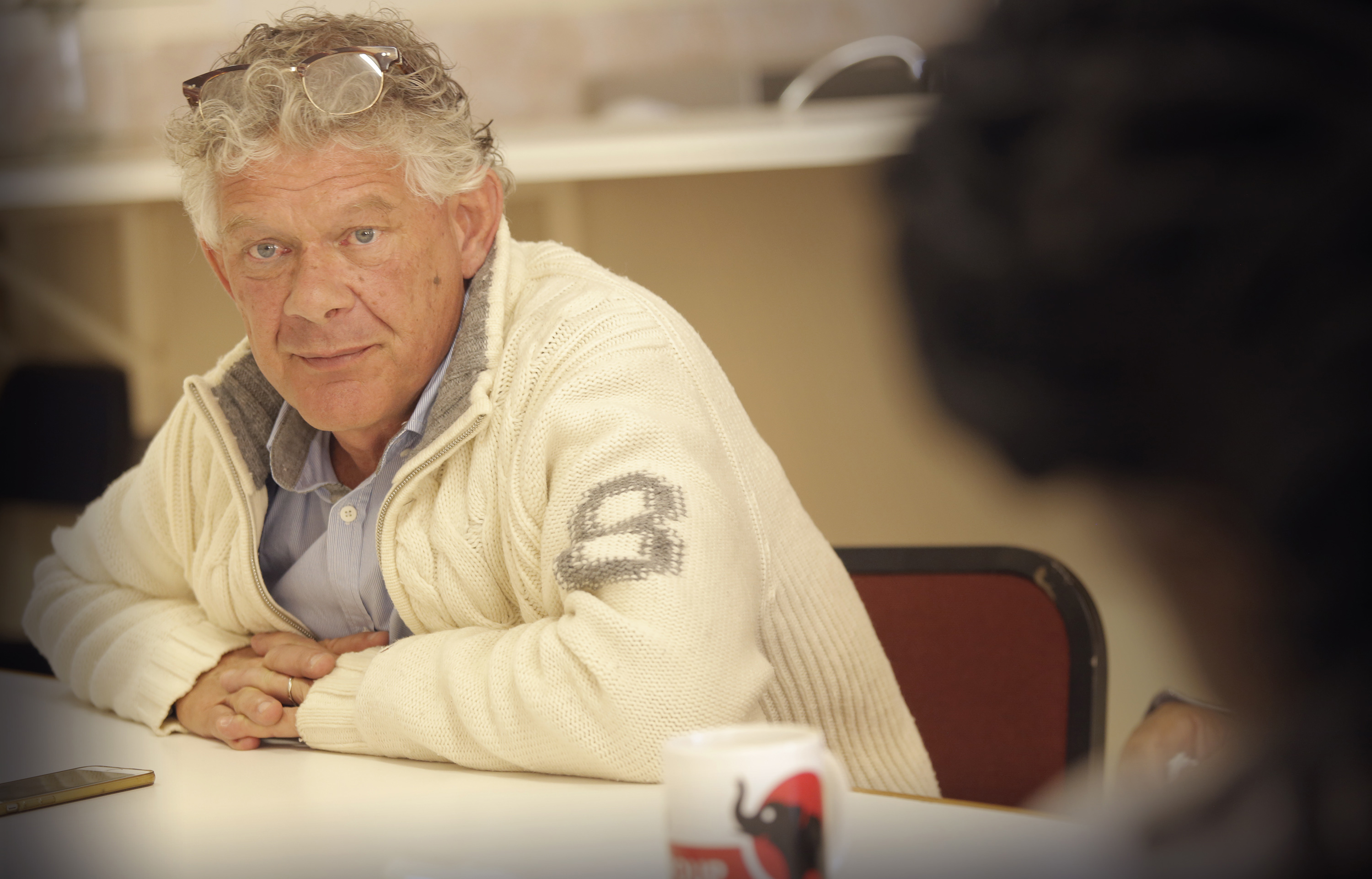Ndlovu Care Group Transfers
SPOTLIGHT: For these patients, the future is not a game – it is a matter of life and death (Part 1)

On 9 July the last trickle of patients receiving antiretrovirals (ARVs) and tuberculosis (TB) medicines at Ndlovu Care Group arrived to collect their medicines at the Limpopo facility for the final time. They were also handed transfer letters to be redirected from the not-for-profit facility to state-run facilities. More than 3,700 patients have gone through a similar process over the last three months.
A patient transfer process in Limpopo that has been marred in controversy and legal wrangling has put the well-being of 3,774 patients at risk and raised questions about the provincial Department of Health’s commitment to patients.
On 9 July the last trickle of patients receiving ARVs and TB medicines at Ndlovu Care Group (NCG) arrived to collect their medicines at the facility for the final time. They were also handed transfer letters to be redirected from the not for profit facility in the township of Elandsdoorn, in Moutse, to state-run facilities. More than 3,700 patients have gone through a similar process over the last three months.
On paper it should have been a straight-forward transfer as result of a three-year contract between the Limpopo Department of Health (DoH) and NCG, a registered public benefit NPO, coming to an end. Instead patients sought to interdict the Department of Health and NCG for failing to reach an agreement to renew the contract.
The first approach to court by a group of patients ended without a hearing. The parties agreed to an order requiring Limpopo DoH and NCG to agree to a three-month extension of the contract between them, together with a joint implementation plan for the transfer of patients out of NCG (the extension had already been discussed by DoH and NCG before the litigation).

The plan required the Limpopo DoH to source the assistance of the Office of Health Standards and Compliance (OHSC) to assist with the assessment of facilities to which patients would be transferred; and required reporting on the implementation of the plan for the transfer of patients to be made available to the applicants by 2 July 2018.
The Limpopo DoH and NCG signed the agreement for three additional months, during which time patients were transferred to public facilities. NCG produced a report from its perspective which it provided to the applicants by 2 July 2018. Despite requesting input from the DoH on this report, such input was never provided.
The transfer has been marked by angry community protests and sparked accusations of racism, intimidation, arrogance and lack of transparency and communication.
The South African Human Rights Commission (SARHC) has stepped in to monitor the transfer process and both SECTION27 and the Treatment Action Campaign (TAC) have also become involved. SECTION27 supported Ndlovu Care Group as their legal representatives.
SECTION27’s Sasha Stevenson says Ndlovu has a good track record of high-quality care for the community. “The two parties to a contract are entitled to decide whether to renew that contract when it expires,” she says. “But more important is the right of people receiving health services to continue to receive those services and for the quality of those services not to decline. And the quality of services at NCG was high.”
The TAC has conducted its own clinic visits to ensure that patients don’t fall through the cracks and they will continue to monitor the clinics over the next few months. TAC however, is waiting for the Limpopo DoH to provide information of existing ART patient numbers at facilities so a baseline for future comparisons can be established.
The SAHRC’s province-wide investigations are a result of what it says is “the extremely concerning status of service delivery to members of the public seeking assistance from public healthcare facilities”.
The SAHRC however, has itself become the target of inflammatory tweets by the Limpopo DoH that accused the Commission of “blatant lies” over findings from a surprise SAHRC visit to Polokwane (Pietersburg) Hospital in mid-June. The SAHRC reported that expired food and medicines were being given to patients there.
MEC for Health Dr Phophi Ramathuba’s recent tweets and public comments about among others HIV/Aids being a black disease and intimating that people with HIV/Aids have themselves to blame for becoming infected have been widely condemned. Ramathuba faces being hauled to the Equality Court for these utterances. Her department was also made to apologise to the SAHRC.
SAHRC commissioner in Limpopo Victor Mavhidula says the legal intervention has been deeply polarising. Mavhidula says he understands how discrepancies and allegations brought to their attention may have impacted on the DoH’s decision not to renew. He points out that there are issues like clarity over the exact value of the contract; clear separation of revenue streams for running different operations at Ndlovu and reporting protocols for research findings at their on-site research facility.
Mavhidula however, says that the goal now is to ensure that patients are accounted for and do not end up defaulting on treatment or having their health compromised.
He adds: “It doesn’t matter where you want to receive your medicine, it’s your right to get treatment wherever you are in South Africa and the SAHRC reserves the right to monitor the transfer over the next few months.”
This comment flies in the face of the prevailing argument that Limpopo DoH funds should not benefit clients from outside the province.
All the fighting and the post mortems of the Ndlovu contract ending are pointless for Michael Mampuru and his wife Colet. Both were clients at Limpopo’s Ndlovu, receiving ARV treatment and care there.
“They are sending me to those other clinics to die,” says Michael. He’s a hulk of a man at 55 but remembers a time when he was almost defeated by HIV. He credits his recovery and good health today to the care he received at Ndlovu.
“When I came here in 2014, my wife held me up on one side and my sister held me on the other side, I couldn’t stand. I slept here for two weeks, they looked after me, they fed me and I got healthy.
“I don’t know what we will find that side. The government doesn’t care about us; I think we voted for them to kill us,” says Michael in Afrikaans and Sepedi.
He and Colet recount their experiences seated at wooden patio benches and tables. This is the patient overflow waiting area. It is spotless. It is also meant to be functional and patient-friendly. These little things, says Colet and Michael, made all the difference to their care at Ndlovu.
“They check everything nicely here, they do my Pap smear every year even when I forget and they know if you are drinking your pills properly because they talk to you– and we pay nothing,” she says.
Ndlovu does have other noteworthy features like a biometric patient identification system for better data capturing, record keeping and queue management. The facility reports that it’s never run out of medicines because of good stock management, they have private consulting rooms, equipment that works and adequate staffing.
The entire township of Elandsdoorn has an undeniable Ndlovu footprint. Over the years NCG set up a crèche, a children’s choir, a gym, a theatre and attractive accommodation meant to attract doctors and specialists to this remote part of the province.
With the non-renewal of the state contract however, 28 people at Ndlovu were retrenched in July. It’s raised fears about Ndlovu’s immediate viability as an employer and anchor in the area where there are already few jobs.

Dr Hugo Tempelman, Ndlovu Care Group, Elandsdoorn. Photo: Rian Horn
The Mampurus linger before driving off. They shake hands and hug staff, including Dr Hugo Tempelman, CEO of Ndlovu. Tempelman founded the clinic in 1994. He arrived in the country in 1990 as a young doctor from the Netherlands, intent on improving rural healthcare in Africa. He raised donor funds from Europe and introduced free ARV treatment in 2003 before the government launched its ARV programme a year later. From 2007 till 2014 Ndlovu ran the programme with US government Pepfar funding and since 2014 ran it with funds from Limpopo DoH.
In answering the SAHRC’s concerns, Tempelman says that they have always maintained multiple bank accounts managed by a trust to ensure clear separation of funding streams and to enable proper auditing. He says their contract was worth R10.8-million last year – that covered operational costs. Laboratory costs and medicines were provided by the state. It was not the inflated numbers he says have been bandied about.
“I will not say that we were cheaper, but we gave cost-effective care that’s provided patients with a counsellor, a nurse and a doctor. And it worked because we had at least 93% of our patients remaining on first-line treatment without a detectable viral load,” he says.
He adds that their research on HIV prevention and co-morbidity of HIV with other chronic conditions has been undertaken with approval by the Limpopo ethical research committee and they adhere to standard medical research protocols and reporting.
“Instead of the wild accusations, lies and confusion I invite anyone to come to do audits or to see our reports – we welcome it,” he says.
Soon after he started the clinic in 1994 Tempelman realised medicine alone would not be enough, so he started food security and early childhood development programmes. NCG also installed much-needed water harvesting and solar panels throughout the township.
Ndlovu has also developed specialised medical units including one focused on cervical cancer screening, diagnosis and treatment and a programme aimed at preventing hearing loss.
Tempelman admits the transfer process has become highly charged, unnecessarily personal and bitter. He insists too that it’s not a case of Ndlovu wanting to cling onto the contract.
“We would be happy to hand over this programme to government. We did this with our ART programme in Bushbuckridge last year. As an NGO we want to work embedded and in cooperation with government. But here in Limpopo we know there are problems and we know patients will suffer,” he says.
Tempelman has, since the transfer, been the target of racial abuse and being demonised as the white man playing saviour to black patients. He says these slurs are distractions and he insists Ndlovu’s operations will continue because the need in the community remains.
Herbert Boltini is an ARV client and employee at Ndlovu. He’s also one of the three patients who brought the case against the Limpopo Department of Health and his employer (NCG was cited for its involvement in the matter but the applicants did not seek any orders against the organisation).
Boltini says his fears about the state-run clinics are based on first-hand experience. He also works as community liaison officer for Ndlovu, which means he visits surrounding clinics and meets with staff there regularly.
“They will always tell you that they’re understaffed and that people will start waiting at 6am and only leave late,” he says.
His own daughter, he says, was ignored for over two hours when he recently had to rush her to an emergency after her leg was severely cut open. Members of his sister’s family complain about long queues and being sent away without medication for chronic illnesses. The clinics he has fingered are Philadelphia, Kwarrielaagte and Elandsdoorn clinics – all three are catchment clinics for transfer patients.
“Patients were not consulted and this decision by the MEC is pure jealousy of what Ndlovu has achieved. The government cannot brag about me when I am one of those who received ARVs from Ndlovu in 2003 when the government was still talking about garlic, beetroot and olive oil,” says Boltini.
He adds: “We are engaging with our lawyers because the DoH failed to submit their findings with the OHSC input on time. We want the MEC to acknowledge the good job that Ndlovu has done. She can find ways to reduce costs without cutting the Ndlovu programme and treating patients like objects she can just move around,” he says.
It’s now a game of wait and see as legal wrangles and monitoring continues. But for 3,774 people, what lies ahead is not a game – it’s a matter of life and death.
The Limpopo DoH’s communications manager Neil Shikwambana initially agreed to a Spotlight interview with MEC Ramathuba but then failed to respond to any subsequent communication. He also failed to respond to questions emailed to him. DM
While Spotlight is published by SECTION27 and the Treatment Action Campaign, its editors have full editorial independence – independence that the editors guard jealously. Spotlight is a member of the South African Press Council

















 Become an Insider
Become an Insider